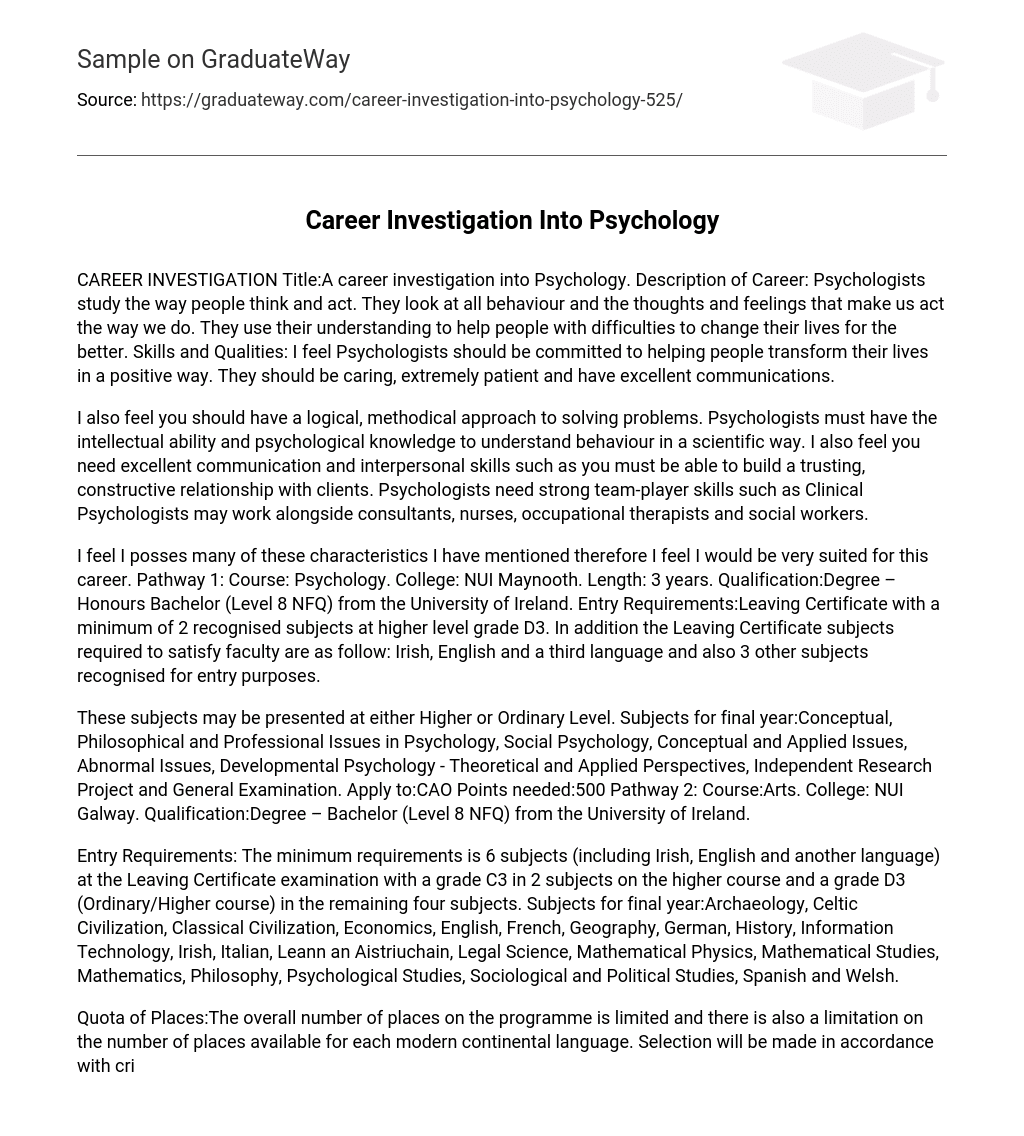Description of Career
Psychologists study the way people think and act. They look at all behaviour and the thoughts and feelings that make us act the way we do. They use their understanding to help people with difficulties to change their lives for the better.
Skills and Qualities
I feel Psychologists should be committed to helping people transform their lives in a positive way. They should be caring, extremely patient and have excellent communications. I also feel you should have a logical, methodical approach to solving problems. Psychologists must have the intellectual ability and psychological knowledge to understand behaviour in a scientific way. I also feel you need excellent communication and interpersonal skills such as you must be able to build a trusting, constructive relationship with clients. Psychologists need strong team-player skills such as Clinical Psychologists may work alongside consultants, nurses, occupational therapists and social workers.
Quota of Places
The overall number of places on the programme is limited and there is also a limitation on the number of places available for each modern continental language. Selection will be made in accordance with criteria determined by the College of Arts and is based on academic performance in first and second year.
Interactions
On the 20th of November 2008, I interviewed a local Psychologist, Dr. May O’Brien, has been in the practice for almost fifteen years. Dr. O’Brien gave me a great insight into the work of a Psychologist, she also informed me of the career path she took to become a Psychologist. She studied in the Department of Experimental Psychology in the University of Cambridge, England. She was very informative and I got a lot of useful information from Dr. O’Brien.
Dr. O’Brien has a PH. D of Psychology which means she qualifies for a wide range of teaching, research, clinical and counselling positions in universities, health care services, primary and secondary schools, private industry and government. A doctoral degree generally requires 5-7 years of study. Dr. O’Brien has completed 7 years in Cambridge before entering the practice. After completing three years of work, she resumed study in Cambridge for her Masters in Psychology, which required two executive years of full-time study. She now has her own practice locally.
Evaluation
About 34% of Psychologists are self-employed compared with only 8% of all workers. Competition for admission to graduate Psychology programs is keen. Overall, employment of Psychologists is expected to grow faster than average. Job prospects should be best for people who have a doctoral degree in applied speciality such as counselling or health and those with a specialist or doctoral degree in school psychology.
Clinical Psychologists working for the Health Service earn around in the region of €40,000 when first starting, as a Trainee Psychologist rising to around €74,180 plus as a Senior Clinical Psychologist at the top of the scale. Psychologists in private practice may earn considerably more. Psychologists work a basic 39-hour week. Some evening and weekend work may be required.
From my undertaking of this Career Investigation, I gained a deeper and more valuable insight on the role of a Psychologist. It confirmed my decision to pursue Psychology as a career. In doing this investigation, I improved immensely my typing and typing speed. I also developed my listening and communication skills from conducting this interview. My organisational skills also improved as I had to prepare and assemble the report.





